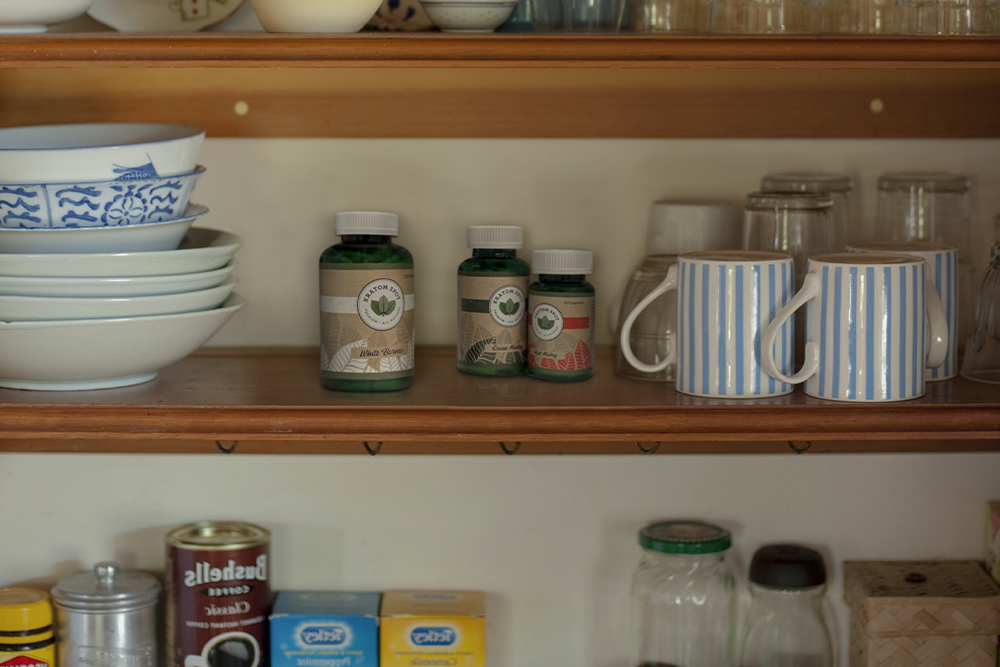
How does heat affect kratom? It’s a question with a lot of implications for how you should use and store kratom, so it’s only natural that we should hear a lot of different versions of the question. And according to who you ask, you may get very different answers.
So, what’s the truth? Does kratom go bad in heat? Does heat activate kratom and somehow make it more effective?
In short: kratom’s alkaloids are sensitive to heat, and you should be careful not to expose them to abnormally high temperatures. Always store kratom in a cool, dry place out of direct sunlight. And if you deliberately expose your kratom to high temperatures (such as when making kratom tea), add an acid (like lemon juice) and simmer, not boil, to protect your kratom dose.
For those looking for a more in-depth guide to all things heat and kratom, read on: you’ve come to the right place.
Research on Heat and Kratom
Do a quick Google search, and you’re likely to find wildly different answers to the question of how heat affects kratom. We’re not so much a fan of opinion when it comes to questions like this, so let’s go to the actual research.
We’re currently aware of only one study on the effects of heat on kratom and its alkaloids. Published in 2020 in the Journal of Analytical Toxicology, the study looked at not only heat but also pH, which proves to be hugely useful for this discussion.
The whole article is worth a browse, but the meatiest extracts can be pulled from a table summarizing the degradation of kratom’s alkaloids at different pH’s and temps over an 8-hour period.
Notably, there are some inconsistencies in the data, and these make it clear that more research is needed. Still, these data points are the best, most reliable information we have on how temperature affects kratom, and they must be considered in any such discussion.
Whenever possible, this article’s discussion will be drawing insight from the results of said study. Tips we give are extrapolated from it and, as such, should be viewed as an educated opinion, though opinion they do remain.
Store Kratom in the Cool, Not in the Heat
Storing your kratom in a cool place is key for a couple of very important reasons: protecting your strain’s potency and preventing the growth of mold.
Kratom’s two main alkaloids, mitragynine and 7-hydroymitragynine, are both heat sensitive. Even at room temperature, they can gradually degrade and lose potency over time.
Generally, however, cold temperatures will reduce the rate at which kratom’s alkaloids degrade and will keep your supply fresher and more effective over time.
Keeping your kratom stored at room temperature (~70°F) appears to be a good spot for protecting both mitragynine and 7-hydroxymitragynine. At higher temperatures (the study’s next data point is 40°C/104°F), mitragynine is still fairly stable, but 7-hydroxymitragynine begins to degrade.
Depending on your location, the summer months may be too hot to store your kratom in just any-old-place. If you go through your supply fairly quickly, it’s unlikely to make too much of a difference — but if you want to keep your supply fresh for more than a couple of weeks, you’re best served by finding a cool place to keep your kratom.
As a bonus: storing kratom in the cool will also help prevent the growth of mold. Mold spores generally require temperatures above 70°F and high (60-70%) humidity in order to flourish. So keeping your supply in a cooler place can delay or completely prevent the growth of mold — especially if your storage space is also dry!
When Making Kratom Tea, Use an Acid to Protect Your Kratom Alkaloids
Kratom tea is one of the most popular and time-honored ways of consuming kratom. Despite its overwhelming popularity, making kratom tea can damage the potency of your dose.
Luckily, a couple of easy precautions can help insulate your alkaloids from the damage that the heat would inflict.
- Brew your tea at a simmer, not at a boil
According to the data, the temperatures required to boil water can significantly degrade kratom’s potency over time. Granted, you don’t need to brew your tea for very long, but these temperatures are still likely to have an effect. By lowering the temperature to a simmer rather than a boil, you can insulate your kratom from some of this damage, significantly reducing the degradation of 7-hydroxymitragynine during your brew.
- Use an edible acid, such as lemon juice, to lower the pH of the water you use
The data shows that moderately acidic environments actually protect kratom’s alkaloids from degradation in heat! Therefore, by adding lemon juice, apple cider vinegar, or another edible acid to the water you use, you can significantly reduce the degrading effect that temperature will have during your brew.
Kratom and Heat, In Closing
So how does heat affect kratom? In a word, badly.
Kratom’s key alkaloids are heat-sensitive, and they will degrade over time when exposed to high heat. Mitragynine is generally fairly stable and will degrade more slowly, but 7-hydroxymitragynine is far more sensitive and can meaningfully degrade at even reasonable Summer temperatures.
So what can you do to protect your stash and keep it fresh over time?
- Always store your kratom in a cool place. Temperatures under 70°F are preferable, especially for strains high in 7-hydroxymitragynine.
- When possible store your kratom in a dry place to prevent the growth of mold. That’s especially important if your storage tends to be hot, as mold spores require both heat and moisture in order to thrive.
- When making kratom tea or otherwise deliberately exposing your kratom to high heat, 1) simmer rather than boil, and 2) lower the pH of your water by adding a bit of lemon juice or other edible acid.
Despite precautions, your supply of kratom won’t last forever on the shelf. Kratom alkaloids will degrade over time, so buying from a reputable vendor that provides only the freshest kratom powder is key.
But by taking these simple precautions, you can dramatically improve the shelf life of your kratom supply and ensure that you have an effective kratom experience much more consistently.

